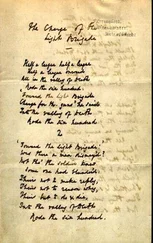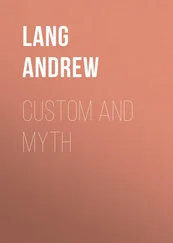Andrew Lang - Alfred Tennyson
Здесь есть возможность читать онлайн «Andrew Lang - Alfred Tennyson» — ознакомительный отрывок электронной книги совершенно бесплатно, а после прочтения отрывка купить полную версию. В некоторых случаях можно слушать аудио, скачать через торрент в формате fb2 и присутствует краткое содержание. Жанр: foreign_antique, foreign_prose, на английском языке. Описание произведения, (предисловие) а так же отзывы посетителей доступны на портале библиотеки ЛибКат.
- Название:Alfred Tennyson
- Автор:
- Жанр:
- Год:неизвестен
- ISBN:нет данных
- Рейтинг книги:5 / 5. Голосов: 1
-
Избранное:Добавить в избранное
- Отзывы:
-
Ваша оценка:
- 100
- 1
- 2
- 3
- 4
- 5
Alfred Tennyson: краткое содержание, описание и аннотация
Предлагаем к чтению аннотацию, описание, краткое содержание или предисловие (зависит от того, что написал сам автор книги «Alfred Tennyson»). Если вы не нашли необходимую информацию о книге — напишите в комментариях, мы постараемся отыскать её.
Alfred Tennyson — читать онлайн ознакомительный отрывок
Ниже представлен текст книги, разбитый по страницам. Система сохранения места последней прочитанной страницы, позволяет с удобством читать онлайн бесплатно книгу «Alfred Tennyson», без необходимости каждый раз заново искать на чём Вы остановились. Поставьте закладку, и сможете в любой момент перейти на страницу, на которой закончили чтение.
Интервал:
Закладка:
Andrew Lang
Alfred Tennyson
INTRODUCTION
In writing this brief sketch of the Life of Tennyson, and this attempt to appreciate his work, I have rested almost entirely on the Biography by Lord Tennyson (with his kind permission) and on the text of the Poems. As to the Life, doubtless current anecdotes, not given in the Biography, are known to me, and to most people. But as they must also be familiar to the author of the Biography, I have not thought it desirable to include what he rejected. The works of the “localisers” I have not read: Tennyson disliked these researches, as a rule, and they appear to be unessential, and often hazardous. The professed commentators I have not consulted. It appeared better to give one’s own impressions of the Poems, unaffected by the impressions of others, except in one or two cases where matters of fact rather than of taste seemed to be in question. Thus on two or three points I have ventured to differ from a distinguished living critic, and have given the reasons for my dissent. Professor Bradley’s Commentary on In Memoriam 1 1 Macmillan & Co.
came out after this sketch was in print. Many of the comments cited by Mr Bradley from his predecessors appear to justify my neglect of these curious inquirers. The “difficulties” which they raise are not likely, as a rule, to present themselves to persons who read poetry “for human pleasure.”
I have not often dwelt on parallels to be found in the works of earlier poets. In many cases Tennyson deliberately reproduced passages from Greek, Latin, and old Italian writers, just as Virgil did in the case of Homer, Theocritus, Apollonius Rhodius, and others. There are, doubtless, instances in which a phrase is unconsciously reproduced by automatic memory, from an English poet. But I am less inclined than Mr Bradley to think that unconscious reminiscence is more common in Tennyson than in the poets generally. I have not closely examined Keats and Shelley, for example, to see how far they were influenced by unconscious memory. But Scott, confessedly, was apt to reproduce the phrases of others, and once unwittingly borrowed from a poem by the valet of one of his friends! I believe that many of the alleged borrowings in Tennyson are either no true parallels at all or are the unavoidable coincidences of expression which must inevitably occur. The poet himself stated, in a lively phrase, his opinion of the hunters after parallels, and I confess that I am much of his mind. They often remind me of Mr Punch’s parody on an unfriendly review of Alexander Smith —
“Most women have no character at all.” – Pope.
“No character that servant woman asked.” – Smith.
I have to thank Mr Edmund Gosse and Mr Vernon Rendall for their kindness in reading my proof-sheets. They have saved me from some errors, but I may have occasionally retained matter which, for one reason or another, did not recommend itself to them. In no case are they responsible for the opinions expressed, or for the critical estimates. They are those of a Tennysonian, and, no doubt, would be other than they are if the writer were younger than he is. It does not follow that they would necessarily be more correct, though probably they would be more in vogue. The point of view must shift with each generation of readers, as ideas or beliefs go in or out of fashion, are accepted, rejected, or rehabilitated. To one age Tennyson may seem weakly superstitious; to another needlessly sceptical. After all, what he must live by is, not his opinions, but his poetry. The poetry of Milton survives his ideas; whatever may be the fate of the ideas of Tennyson his poetry must endure.
I
BOYHOOD – CAMBRIDGE – EARLY POEMS
The life and work of Tennyson present something like the normal type of what, in circumstances as fortunate as mortals may expect, the life and work of a modern poet ought to be. A modern poet, one says, because even poetry is now affected by the division of labour. We do not look to the poet for a large share in the practical activities of existence: we do not expect him, like Æschylus and Sophocles, Theognis and Alcæus, to take a conspicuous part in politics and war; or even, as in the Age of Anne, to shine among wits and in society. Life has become, perhaps, too specialised for such multifarious activities. Indeed, even in ancient days, as a Celtic proverb and as the picture of life in the Homeric epics prove, the poet was already a man apart – not foremost among statesmen and rather backward among warriors. If we agree with a not unpopular opinion, the poet ought to be a kind of “Titanic” force, wrecking himself on his own passions and on the nature of things, as did Byron, Burns, Marlowe, and Musset. But Tennyson’s career followed lines really more normal, the lines of the life of Wordsworth, wisdom and self-control directing the course of a long, sane, sound, and fortunate existence. The great physical strength which is commonly the basis of great mental vigour was not ruined in Tennyson by poverty and passion, as in the case of Burns, nor in forced literary labour, as in those of Scott and Dickens. For long he was poor, like Wordsworth and Southey, but never destitute. He made his early effort: he had his time of great sorrow, and trial, and apparent failure. With practical wisdom he conquered circumstances; he became eminent; he outlived reaction against his genius; he died in the fulness of a happy age and of renown. This full-orbed life, with not a few years of sorrow and stress, is what Nature seems to intend for the career of a divine minstrel. If Tennyson missed the “one crowded hour of glorious life,” he had not to be content in “an age without a name.”
It was not Tennyson’s lot to illustrate any modern theory of the origin of genius. Born in 1809 of a Lincolnshire family, long connected with the soil but inconspicuous in history, Tennyson had nothing Celtic in his blood, as far as pedigrees prove. This is unfortunate for one school of theorists. His mother (genius is presumed to be derived from mothers) had a genius merely for moral excellence and for religion. She is described in the poem of Isabel , and was “a remarkable and saintly woman.” In the male line, the family was not (as the families of genius ought to be) brief of life and unhealthy. “The Tennysons never die,” said the sister who was betrothed to Arthur Hallam. The father, a clergyman, was, says his grandson, “a man of great ability,” and his “excellent library” was an element in the education of his family. “My father was a poet,” Tennyson said, “and could write regular verse very skilfully.” In physical type the sons were tall, strong, and unusually dark: Tennyson, when abroad, was not taken for an Englishman; at home, strangers thought him “foreign.” Most of the children had the temperament, and several of the sons had some of the accomplishments, of genius: whence derived by way of heredity is a question beyond conjecture, for the father’s accomplishment was not unusual. As Walton says of the poet and the angler, they “were born to be so”: we know no more.
The region in which the paternal hamlet of Somersby lies, “a land of quiet villages, large fields, grey hillsides, and noble tall-towered churches, on the lower slope of a Lincolnshire wold,” does not appear to have been rich in romantic legend and tradition. The folk-lore of Lincolnshire, of which examples have been published, does seem to have a peculiar poetry of its own, but it was rather the humorous than the poetical aspect of the country-people that Tennyson appears to have known. In brief, we have nothing to inform us as to how genius came into that generation of Tennysons which was born between 1807 and 1819. A source and a cause there must have been, but these things are hidden, except from popular science.
Читать дальшеИнтервал:
Закладка:
Похожие книги на «Alfred Tennyson»
Представляем Вашему вниманию похожие книги на «Alfred Tennyson» списком для выбора. Мы отобрали схожую по названию и смыслу литературу в надежде предоставить читателям больше вариантов отыскать новые, интересные, ещё непрочитанные произведения.
Обсуждение, отзывы о книге «Alfred Tennyson» и просто собственные мнения читателей. Оставьте ваши комментарии, напишите, что Вы думаете о произведении, его смысле или главных героях. Укажите что конкретно понравилось, а что нет, и почему Вы так считаете.












